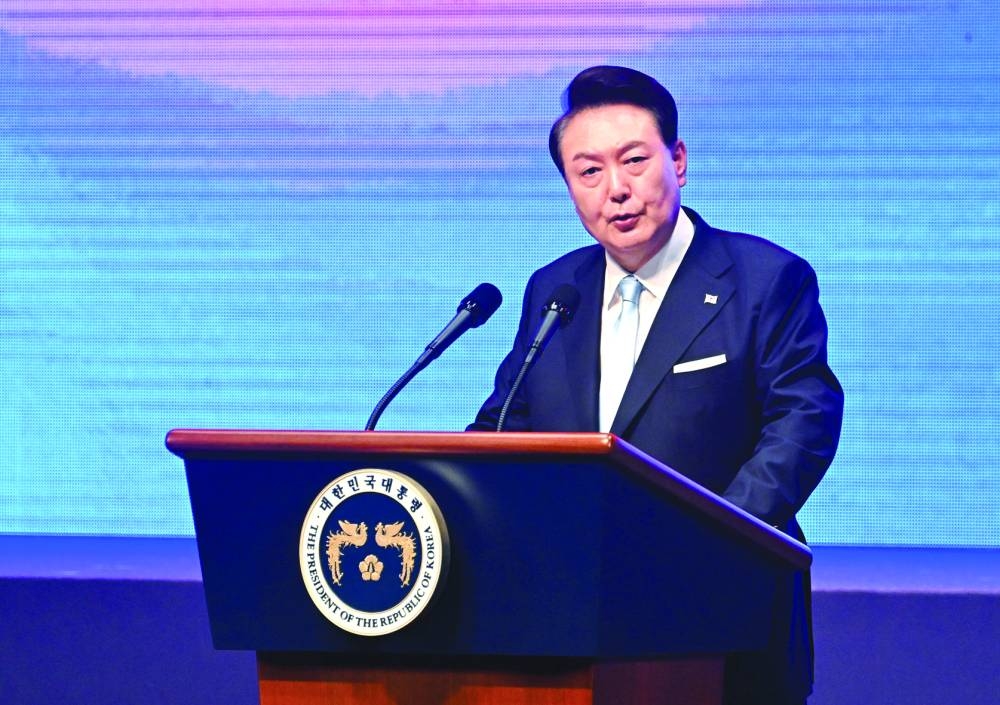South Korean President Yoon Suk-yeol has offered to establish a working-level consultative body with North Korea to discuss ways to ease tension and resume economic co-operation, as he laid out his vision on unification of the neighbours.
In a National Liberation Day speech marking the 79th anniversary of independence from Japan’s 1910-45 colonial rule after World War II, Yoon said he is ready to begin political and economic co-operation if North Korea “takes just one step” toward denuclearisation.
Yoon used the speech to unveil a blueprint for unification and make a fresh outreach to Pyongyang, following his government’s recent offer to provide relief supplies for flood damage in the isolated North which he said had been rejected.
However, a unified Korea appears a distant prospect with relations between the neighbours at the lowest point in decades as North Korea races to advance its nuclear and missile capabilities and takes steps to cut ties with the South, redefining it as a separate, hostile enemy state.
North Korea has sent thousands of trash-filled balloons southward since May, prompting Seoul to resume propaganda broadcasts along the frontier and suspend a 2018 deal aimed at lowering temperatures between the two militaries.
North Korean leader Kim Jong-un declared the South as the principal enemy earlier this year, and Pyongyang has not responded to inter-Korean liaison hotline calls since April 2023.
Yoon said launching the “inter-Korean working group” could help relieve tensions and handle any issues ranging from economic co-operation to people-to-people exchanges to reunions of families separated by the 1950-53 Korean War.
“Dialogue and co-operation can bring about substantive progress in inter-Korean relations,” he said.
In Washington, the White House senior director for the East Asia region, Mira Rapp-Hooper, said North Korea had shown no interest in dialogue, but the US, South Korea and Japan would continue to co-ordinate diplomatic strategies towards that end.
“Ultimately, we do hope that Pyongyang will see fit to engage with at least one of us at some point,” she told the Hudson Institute think tank.
Yoon, in the speech, also raised the idea of launching an international conference on North Korea’s human rights and a fund to promote global awareness on the issue, support activist groups, and expand North Koreans’ access to outside information.
“If more North Koreans come to recognise that unification through freedom is the only way to improve their lives and are convinced that a unified Republic of Korea will embrace them, they will become strong, friendly forces for a freedom-based unification,” he said.
Yoon’s speech marked a departure from his focus on Japan during past anniversaries, even as at least three Japanese cabinet ministers visited the controversial Yasukuni shrine which Seoul calls a symbol of the country’s wartime aggression.
Seoul’s foreign ministry expressed deep disappointment over the visit, urging Tokyo to “face history and demonstrate humble reflection and genuine introspection on the past”.

Yoon: Dialogue and co-operation can bring about substantive progress in inter-Korean relations.
